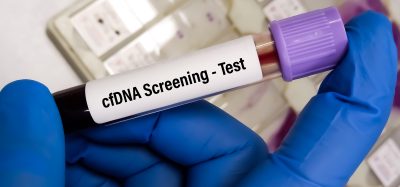Platform reveals insights into cancer genomics and personalised medicine
Posted: 9 February 2021 | Victoria Rees (Drug Target Review) | No comments yet
Researchers have developed a personalised medicine platform that could advance genomic medicine research for cancer.

A team of researchers has developed a personalised genomic medicine platform that they say will help to accelerate genomic medicine research and genome-informed drug discovery. The study was conducted at the Cleveland Clinic, US.
Known as My Personal Mutanome (MPM), the platform features an interactive database that provides insight into the role of disease-associated mutations in cancer and prioritises mutations that may be responsive to drug therapies.
“Although advances in sequencing technology have bestowed a wealth of cancer genomic data, the capabilities to bridge the translational gap between large-scale genomic studies and clinical decision making were lacking,” said Dr Feixiong Cheng, the study’s lead author. “MPM is a powerful tool that will aid in the identification of novel functional mutations/genes, drug targets and biomarkers for cancer, thus accelerating the progress towards cancer precision medicine.”
Using clinical data, the researchers integrated nearly 500,000 mutations from over 10,800 tumour exomes across 33 cancer types to develop the comprehensive cancer mutation database. They then systematically mapped the mutations to over 94,500 protein-protein interactions (PPIs) and over 311,000 functional protein sites and incorporated patient survival and drug response data.
The platform analyses the relationships between genetic mutations, proteins, PPIs, protein functional sites and drugs to help users easily search for clinically actionable mutations. The MPM database features three interactive visualisation tools that provide two- and three- dimensional views of disease-associated mutations and their associated survival and drug responses.
According to the researchers, MPM enables better understanding of mutations at the human interactome network level, which may lead to new insights in cancer genomics and treatments and ultimately help realise the goal of personalised care for cancer. The team will update MPM annually to provide researchers and physicians the most complete data available.
“As a next step, we are developing new artificial intelligence algorithms to translate these genomic medicine findings into human genome-informed drug target identification and precision medicine drug discovery for other complex diseases, including heart disease and Alzheimer’s disease,” said Dr Cheng.
The personalised medicine study results were published in Genome Biology.
Related topics
Genetic Analysis, Genomics, Informatics, Oncology, Personalised Medicine, Precision Medicine
Related conditions
Cancer
Related organisations
Cleveland Clinic
Related people
Dr Feixiong Cheng







